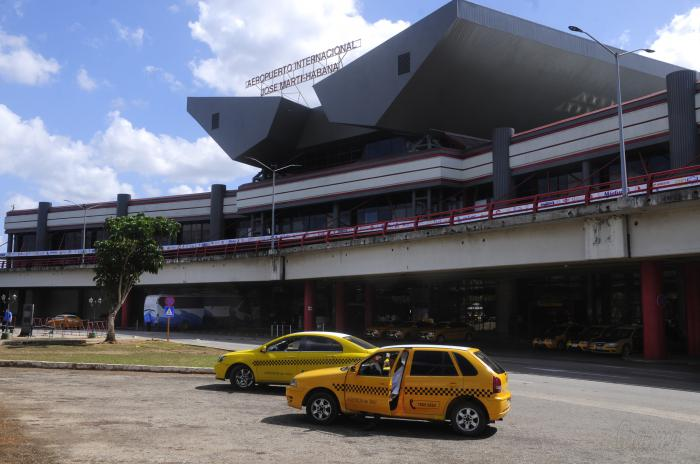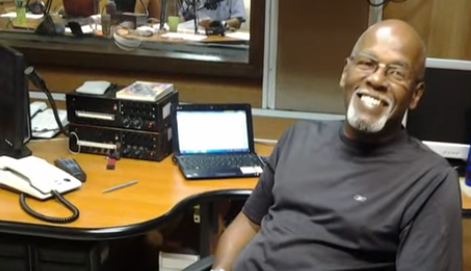We talked to Luis Alberto Izquierdo, who has accumulated over thirty years of experience in this field, with a systematic work that has allowed him to take his voice to national and international events.
“Traditionally, there are sports that are narratable for radio, in our country, we have baseball and boxing, other sports that involve balls such as basketball, volleyball and soccer are also narratable for radio because of the rhythm and variety of their moves that allow a high level of description.
There are others within athletics, for example, that, I consider, are not narratable for radio because of the large space that must be filled with comments, since there are few elements to describe, such as: long-distance running, hammer throws, javelin, discus and combat sports where the rhythm of the actions is slower, such as judo and wrestling. However, thanks to the professionalism of some colleagues, this work has been achieved , especially when it is important to take it to the audience due to the leading presence of our country in these competitions”.
The mastery of radio language is an essential condition for sports narrators-commentators. Such language depends on the combination of several elements that go from what is expressed to how it is said, and include the technological conditions they work with. According to Izquierdo, the production routine of a commentator-narrator involves several essential elements.
“The requirement for radio sports narration is to be present where the competition takes place in order to be able to observe as many actions and movements as possible. It is definitely not the same when you narrate only through a monitor screen; that way you tend to miss many elements that happen in situ and that are not captured by the lens of a camera. For example, if you narrate a baseball game through a monitor, the camera is basically with the pitcher and the batter, so you cannot describe how the players are moving on defense, the infielder, whether the center fielder charged more to the right, or what’s happening in the dugout, and what other extra circumstances may influence the game and deserve to be told”.
“It would be helpful to have a commentator position, which is a space that is reserved at the competition venue, and it’s perfectly located so you have an adequate visibility. You should be able to watch the game from above, from the top. For example, we have been to international track and field competitions where the commentator position is near the finish line at the height of a second floor. This allows you to see the entire stadium, the competition area and every movement of the athletes. In recent times, the commentator position is technologically supported by a computer that provides data and a monitor that allows you to see details, such as the actions, in slow motion”.
Cuban fans enjoy a wide range of sports. In the last decades, the passion for football has taken root in our country and the audience follows leagues from different parts of the world. This requires a special training for a narrator-commentator, because in this type of events, the competition is broadcasted from the signal of international television stations with certain production codes”. Luis Alberto Izquierdo commented in this regard.
“This implies a great responsibility for the narrator because this type of event is very frequent and the fans dominate the sport. You have to be prepared and study the names and all the information of each of the players, regular and non-regular, so that the audience receives a narration with all the professionalism it deserves, carrying all this in your memory. You have to make sure you know the athletes physically so that you can naturally describe the actions they perform. Doing all that through a monitor, with the limitations I explained above, implies a great effort for both radio and television narrators, but a double effort for radio, because television offers an image, and you can let the audience rely on what they are seeing, but on radio you have to describe everything all the time. People cannot imagine the effort you have to make in a world football championship in a match between an Asian team and a team from Africa, for example, where there are players who do not play in international leagues, so, this kind of training must be done with immediacy, and for as many games as needed”.
“This concept of narrator-commentator is not common in the world, it is something we only do in Cuba. Elsewhere, there is a narrator and the comments are made by another person who is usually a former athlete, who has been a major sportsmen or woman, or may also be a coach, who offers his specialized vision of the processes that an athlete is going through, according to his own experiences. It would be amazing to rely on comments of that nature in order to do a good job, where the commentator explains what a batter is doing wrong, and this might imply the way he stands, or the way he grabs the bat, and so on.
“When covering a multiple event, I believe we lack specialization in some sports. We must strive to get a specialty on sports, so as to avoid what happens sometimes, and I’ll mention boxing, for instance, when a narrator says: Cuban right blow, Cuban left blow, and fail to mention the exact name of the blow (hook, swing, straight punch). You have to know everything about the sport you are narrating, and be more descriptive where there is more action. Sometimes you focus more in the commentaries and loose the actions. I believe that in some sports such as baseball, due to its characteristics, there is time for you to make some commentaries, but you should try to use more description at the exact moment of the action, instead of narrating it in the past tense. The best narration of a home run is when it is happening, that’s when there is the greatest emotion.
“I have shared seats with narrators from several countries and there are extraordinary narrators in Latin America, but they get a specialty in one or two sports. I have not met narrators on the international scene who, at the end of a multiple event, such as an Olympics, have narrated six or seven sports as we do on radio and television.”
The history of sports narration in our country treasures unforgettable names that have made history and left traces in the memory of the people. Their voices are preserved as a valuable heritage of this nation that can identify itself with the continuous practice of sports. Izquierdo reminds us of some of those names.
“There are narrators that have become icons in our country because they had their own style. I remember the brilliant mind of Salamanca in many of his phrases that today are part of the sports world such as: “Adiós Lolita de mi vida” and “tres golpes de mocha y lo tiró para la tonga”. Likewise, the sober and simple style of Eddy Martin, is latent. He had a deep knowledge of history, a great language proficiency and a flawless pronunciation. Also, René Navarro, with a great descriptive power using phrases such as: Four-handed blocking, and the use of epithets: The spectacular Morenas del Caribe. I remember the voices of Piti Rivero and his great confidence, Héctor Rodríguez with his amazing voice that trapped the audience.
“Today we have excellent narrators, even in the provincial radio stations, but we must work to increase our knowledge. An element that is becoming recurrent and that must be controlled, is the repetition of phrases used by foreign narrators, and this hinders the natural character of their work.




